The Epiphany
Learn More

At a Glance
The Epiphany falls on January 6
The Epiphany signifies the visitation of the Biblical Magi to the Baby Jesus
The word epiphany means, "manifestation." An epiphany is a moment when there is a special or profound revelation or insight. In our case, the Epiphany celebrates the moment when the wise men realized that Jesus Christ was the promised Messiah, the one who would take away the sins of the world.
Now this revelation isn't bound to a specific moment in time. The Epiphany is an ongoing event. Today and every day, we are asked to recognize and acknowledge Jesus Christ as our Lord. However, in this article, we will focus on the moment of Epiphany, which is celebrated on the first Sunday after January 1 in the United States, and by the wider Church on January 6. On that day, the faithful gather at Mass to celebrate this profound moment in history.
God promised the Savior to the world for thousands of years prior to His birth. His arrival is foretold in Genesis. Prophets also announced His coming. People developed expectations. Many expected the Savior to arrive as a conquering hero, a great king who would overthrow the Romans and elevate Israel to a state of glory greater than King David had done.
But the wait was long. The Messiah did not come in the time of Moses, King David, or Elijah. Nor did the Messiah come during the Babylonian Captivity, or when Alexander appeared with his armies. Only when Israel was well into the Roman occupation and under the heel of King Herod, did the Messiah finally come. Late at night, a young mother gave birth under the most humble circumstances. But this child was unlike any ever born, for this child was the promised Son of God.
Joseph and Mary knew the truth, which had been revealed to them. They already had their epiphany. But the rest of the world was ignorant of the profound development happening in the countryside of an ancient village in Israel.
According to the Scriptures, three men, variously referred to as "the wise men," or as "kings" or even "astrologers," guided by a sign in the heavens, came to the place where the infant Jesus slept. They came to pay homage to a baby. Remarkably, these men were pagan. They were not followers of God, yet. And when they arrived, they realized that this baby was more than an earthly king. This baby was the promised Savior of the World. They paid Him due homage with gifts of gold, frankincense, and myrrh. The celebration of Epiphany commemorates the moment when these three men, literal outsiders apart from the Jewish people, recognized that Jesus was Lord.
The church invites the faithful to relive this moment each year with a special Mass. As individuals, we are encouraged to celebrate the epiphany each day in our lives by acknowledging Jesus Christ as our Lord and Savior.
There is still more to Epiphany than this. In the Bible, there several notable epiphanies that occur during the life of Christ. Although they are not the focus on the celebrations on the Feast of the Epiphany, they are important.
A second event we could classify as an epiphany is our Lord's baptism in the Jordan River. At that time, the Holy Spirit descended, and the voice of God was heard saying, "This is my Son, whom I love. With Him I am well pleased." (Matthew 3:16) This event qualifies as an epiphany because it was revealed to all present that Jesus was the Lord, the Messiah promised by God.
The third event is at the wedding feast at Cana, where Jesus worked his first sign in public, turning water into wine. (John 2:7-11) The guests remarked at the quality of the wine, but they were oblivious to the miracle. They did not recognize the Messiah in their very presence. However, the servants did. Those who were performing the labor as directed by our Lord, saw clearly what was happening.
And the forth we will mention here is when Jesus asked of his Disciples, "Who do you say that I am?" (Matthew 16:15) It was Peter who had the epiphany this time, recognizing Jesus as the Son of God.
As Christians, we are literal, personal participants in the epiphany. It is important to understand this. Each day we are asked the question, "Who do you say I am?" Each day, we are invited to pay homage to Jesus, recognizing Him as our Lord, paying Him homage through prayer, sacrifice, and obedience.
Blessed Columba Marmion on 'The Epiphany'
SUMMARY - God Eternal light, is chiefly manifested by the Incarnation. - I. The manifestation to the Magi signifies the calling of the pagan nations to the light of the Gospel. II. The Magi's faith, prompt and generous, is the model of what ours should be. - III. What the Magi did when the star disappeared. - - IV. The greatness of their faith at Bethlehem; symbolism of the gifts offered by them to the Child God; how we may imitate them
Whenever a soul comes into a more intimate contact with God, she feels herself wrapt around with mystery: Nubes et caligo in circuitu ejus (Ps 46:2). This mystery is the inevitable consequence of the infinite distance that separates the creature from the Creator. On all sides, the finite being is surpassed by Him Who, everlastingly, is the plenitude of Being.
This is why one of the most profound characters of the Divine Being is His incomprehensibility. The invisibility here below of the Divine Light is a truly wonderful thing.
"God is Light," says St. John; He is the Infinite Light, "and in Him there is no darkness": Deus lux est, et tenebrae in eo non sunt ullae. St. John is careful to note that this truth constitutes one of the foundations of his Gospel: Et haec est annuntiatio quam audivimus ab eo, et annuntiamus vobis (1 Jn 1:5). But this light, which bathes us all in its brightness, instead of manifesting God to the eyes of our souls, hides Him. It is with this light as with the sun: its very brilliancy prevents us from contemplating it: Lucem inhabitat inaccessibilem (1 Tim 6:16).
And yet this light is the life of the soul. You will have noticed that, in Holy Scripture, the ideas of life and light are frequently associated. When the psalmist wants to describe the eternal beatitude whereof God is the source, he says that in God is the principle of life: Torrente voluptatis tuae potabis eos. Quoniam apud te est fons VITAE; and he immediately adds: "And in Thy light we shall see light": Et in lumine tuo VIDEBIMUS LUMEN (Ps 35:9-10). It is in the same way that Our Lord declares Himself to be "the Light of the world". Again He says (and here is something more than a mere juxtaposition of words), "He that followeth Me walketh not in darkness, but shall have the light of life ":: Habebit LUMEN VITAE (Jn 8:12). And this light of life proceeds from the Life by essence which is Light: In ipso vita erat, et vita erat lux hominum (Ibid 1:4). Our life in heaven will be to know the Eternal Light unveiled, and to rejoice in the splendour of this Light.
Already, here below, God gives a participation of this light by endowing the human soul with reason. Signatum est super nos lumen vultus tui, Domine (Ps 4:7). Reason is a true light for man. All the natural activity of man, if he is to be worthy of himself, ought to be directed first of all by that light which shows him the good to be pursued; a light so powerful that it is even capable of revealing to man the existence of God and some of His perfections. St. Paul, writing to the faithful in Rome (Rom 1:20), declares the pagans to be inexcusable for not having known God through contemplating the world, His handiwork. God's works contain a vestige, a reflection of His perfections, and thus, up to a certain point, declare the infinite light.
There is another deeper, more merciful manifestation that God has made of Himself: it is the Incarnation.
The divine light, too dazzling to be manifested in all its splendour to our feeble sight, is veiled beneath the sacred Humanity: quod est velamen, is the expression of St. Paul" (Cf. Heb 10:20). "The brightness of eternal light" (Sap 7:26), light shining forth from light, lumen de lumine, the Word had clad Himself in our flesh that through it we may contemplate the Divinity: Nova mentis nostrae oculis lux tuae claritatis infulsit (Preface for the Nativity), Christ is God brought within our reach, showing Himself to us in a life authentically human; the veil of the Humanity prevents the infinite and dazzling splendour of the Divinity from blinding us.
But for every soul of good will, rays come forth from this Man revealing that He is likewise God. The soul enlightened by faith knows the splendour hidden behind the veil of this Holy of Holies. In the mortal Man that Jesus is, faith finds God Himself, and in finding God, she drinks at the source of light, salvation and immortal life: Quia cum Unigenitus tuus in substantia nostrae mortalitatis apparuit, nova nos immortalitatis suae luce reparavit (Preface for the Epiphany).
This manifestation of God to men is so extraordinary a mystery, a work so full of mercy; it constitutes one of the characters so essential to the Incarnation that, in the first centuries, the Church had no special feast in honour of the Saviour's Birth at Bethlehem. She celebrated the feast of the "Theophania," the feast of the "Divine manifestations" in the Person of the Incarnate Word:-the manifestation to the Magi,-the manifestation upon the banks of the Jordan at the Baptism of Jesus,-and the manifestation at the marriage feast of Cana where Christ wrought His first miracle. In passing from the Church of the East to that of the West, the feast has retained its name in Greek: Epiphany, the "manifestation"; but it has almost exclusively for its object the manifestation of the Saviour to the Gentile world, to the pagan nations, in the person of the Magi.
You well know the Gospel narrative of the coming of the Magi to Bethlehem, a narrative illustrated and popularised by tradition (Most authors place the coming of the Magi after the presentation of Jesus in the Temple we here follow the order indicated by the Church which, in the liturgy, celebrates the Epiphany on January 6th and the Presentation on February 2nd.) . I will simply say a few words upon the general signification of the mystery; afterwards, whilst dwelling on certain details, I will point out some of the numerous lessons that it contains for our devotion.
I
The Fathers of the Church have seen in the call of the Magi to Christ's cradle the vocation of pagan nations to the Faith. This is the very foundation of the mystery, explicitly indicated by the Church in the collect wherein she sums up the desires of her children on this solemnity: Deus qui hodierna die Unigenitum tnum GENTIBUS stella duce revelasti.
The Incarnate Word is first of all manifested to the Jews in the person of the shepherds. Why was this? Because the Jewish people were the Chosen People. From this people was to come forth the Messias, the Son of David. The magnificent promises to be realised in the establishing of the Messianic Kingdom had been made to this people; it was to them that God had entrusted the Scriptures and given the Law whereof each element prefigured the grace that was to be brought by Christ. It was then befitting that the Incarnate Word should first be manifested to the Jews.
The shepherds, simple and upright men, represented the Chosen People at the Crib: Evangelizo vobis gaudium magnum.., quia natus est vobis hodie Salvator (Lk 2:10-11).
Later on, in His public life, Our Lord would again manifest Himself to the Jews, by the wisdom of His doctrine and the splendour of His miracles.
We shall even find that He restricts His teaching to the Jews alone. See, for example, when the woman of Canaan, from the pagan regions of Tyre and Sidon, asks Him to have mercy upon her. What does Christ answer to the disciples when they interpose in her favour? "I was not sent but to the sheep that are lost of the house of Israel" (Mt 15:24). It needed the ardent faith and profound humility of the poor pagan woman to wrest from Jesus, so to speak, the grace that she implored.
When, during His public life, Our Lord sent His Apostles to preach, like Himself, the good news, He likewise said to them: "Go ye not into the way of the Gentiles, and into the city of Samaritans enter you ye not. But go ye rather to the lost
sheep of the house of Israel" (Mt 10:5-6). Why this strange recommendation? Were the pagans excluded from the grace of redemption and salvation brought by Christ? No; but it entered into the divine economy to reserve the evangelization of the pagan nations to the Apostles, after the Jews should have definitely rejected the Son of God, by crucifying the Messias. When Our Lord dies upon the cross, the veil of the temple is rent in twain to show that the Ancient Covenant with the Hebrew people had ceased.
Many Jews indeed did not want to receive Christ. The pride of some, the sensuality of others, blinded their souls, and they would not receive Him as Son of God. It is of them that St. John speaks when he says: "The light shineth in darkness, and the darkness did not comprehend it" (Jn 1:5, 11). Therefore Our Lord says to these incredulous Jews: "The Kingdom of God shall be taken from you, and shall be given to a nation yielding the fruit thereof" (Mt 21:43).
The pagan nations are called to become the inheritance promised by the Father to His Son Jesus: Postula a me, et dabo tibi gentes haereditatem tuam (Ps 11:8). Our Lord Himself says: "The good shepherd giveth His life for His sheep," adding immediately: "Other sheep I have, that are not of this fold": Alias oves habeo, quae non sunt ex hoc ovili. "Them also I must bring, and they shall hear My voice, and there shall be one fold and one shepherd" (Jn 10: 11, 16).
This is why, before ascending into heaven, He sends His Apostles to continue His work and mission of salvation, no longer among the lost sheep of Israel, but among all people. "Going therefore," He says to them, "teach ye all nations... preach the gospel to every creature... I am with you all days, even to the consummation of the world" (Mt 28:19-20).
The Word Incarnate did not, however, await His Ascension to shed abroad the grace of the Gospel upon the Gentile world. As soon as He appeared here below, He invited it to His cradle in the person of the Magi. He, Eternal Wisdom, would thus show us that He brought peace, Pax hominibus bonae voluntatis (Lk 2:14), not only to those who were nigh to Him- the faithful Jews represented by the shepherds, -but also to those who " were afar off "-the Pagans represented by the Magi. Thus, as St. Paul says, of the two people He made but one: Qui fecit utraque unum, because He alone, by the union of His Humanity with His Divinity, is the perfect Mediator, and "by Him we have access both in one Spirit to the Father" (Eph 2:14, 17-18).
The calling of the Magi and their sanctification signifies the vocation of the Gentiles to the faith and to salvation. God sends an angel to the shepherds, for the Chosen People were accustomed to the apparition of the celestial spirits; to the Magi, who studied the stars, He causes a marvellous star to appear. This star is the symbol of the inward illumination that enlightens souls in order to call them to God.
The soul of every grown-up person is in fact enlightened, once at least, like the Magi, by the star of the vocation to eternal salvation. To all the light is given. It is a dogma of our faith that God "will have all men to be saved": Qui OMNES homines vult salvos fieri, et ad agnitionem veritatis venire (1 Tim 2:4).
On the day of judgment, all without exception will proclaim, with the conviction produced by evidence, the infinite justice of God and the perfect rectitude of His judgments: Justus es, Domine, et rectum judicium tuum (Ps 118:137). Those whom God shall have told to depart from Him for ever will acknowledge that they are the workers of their own ruin.
Now this would not be true if the reprobate had not had the possibility of knowing and accepting the divine light of faith. It would be contrary not only to God's infinite goodness, but even to His justice, to condemn a soul on account of its invincible ignorance.
Doubtless, the star that calls men to the Christian faith is not the same for all; it shines in different ways, but its brightness is visible enough for hearts of good will to be able to recognise it and see in it the sign of the Divine call. In His providence full of wisdom, God incessantly varies His action, incomprehensible like Himself. He varies it according to the ever active promptings of His love and the ever holy exigencies of His justice. We ought herein to adore the unfathomable depths of God's ways and proclaim that they infinitely surpass our created views. Indeed "who hath known the mind Or the Lord ? Or who hath been His counsellor ? " O altitudo divitiarum sapientiae et scientiae Dei! Quam incomprehensibilia sunt judicia ejus et investigabiles viae ejus! (Rom 11:33).
We have "seen the star" and have recognised as our God the Babe of Bethlehem; we have the happiness of belonging to the Church whereof the Magi were the first fruits.
In the office of the feast, the Liturgy celebrates this vocation of all humanity to faith and salvation in the person of the Magi as the nuptials of the Church with the Bridegroom. Hear with what gladness, in what magnificent symbolical terms, borrowed from the prophet Isaias, the liturgy proclaims (Epistle of the Mass) the splendour of this spiritual Jerusalem which is to receive into her maternal bosom the nations become the inheritance of her divine Bridegroom. "Arise, be enlightened, O Jerusalem, for thy light is come, and the glory of the Lord is risen upon thee. For behold, darkness shall cover the earth, and a mist the people; but the Lord shall arise upon thee, and His glory shall be seen upon thee. And the Gentiles shall walk in thy light, and kings in the brightness of thy rising. Lift up thy eyes round about, and see; all these gathered together, they are come to thee: thy sons shall come from afar, and daughters shall rise up at thy side. Then shalt thou see, and abound, and thy heart shall wonder and be enlarged, when the multitude of the sea shall be converted to thee, the strength of the Gentiles shall come to thee" (Is 60:15).
Let us offer continual thanksgiving to God "Who hath delivered us from the power of darkness, and hath translated us into the kingdom of the Son of His love" (Col 1:13), " that is to say into His Church.
The call to the faith is a signal benefit because it contains in germ the vocation to the eternal beatitude of the Divine vision. Never let us forget that this call was the dawn of all God's mercies towards us, and that for man all is summed up in fidelity to this vocation; faith is to bring us to the Beatific Vision (Collect for the Feast).
Not only ought we to thank God for this grace of the Christian faith, but we ought each day to render ourselves more worthy of it by safeguarding our faith against all the dangers that it encounters in our age of naturalism, scepticism, indifference, human respect, and by living a life of faith with constant fidelity.
Moreover, let us beseech God to grant this precious gift of the Christian faith to all the souls who yet "sit in darkness, and in the shadow of death"; let us beseech Our Lord that the star may shine upon them; that, through His tender mercy, He Himself will be the Sun to visit them from on high: Per viscera misericordiae Dei nostri in quibus visitavit nos, Oriens ex alto (Lk 1:78-79)
This prayer is very pleasing to Our Lord; it is, in fact, to beseech Him that He may be known and exalted as the Saviour of all mankind and the King of kings.
It is likewise pleasing to the Father, for He desires nothing so much as the glorification of His Son. Let us then often repeat, during these holy days, the prayer that the Incarnate Word Himself has put upon our lips: O Heavenly Father, "Father of Lights," Thy Kingdom come, that kingdom whereof Thy Son Jesus is the head. Adveniat regnum tuum! May Thy Son be more and more known, loved, served, glorified, so that in His turn He may, by manifesting Thee the more to men, glorify Thee in the unity of the Holy Ghost: Pater, clarifica Filium taum ut Filius tuus clarificet te !
II
If we now return to some of the details of the Gospel narrative, we shall see how rich in teaching is this mystery.
I have said that the Magi at Bethlehem represented the Gentiles in their vocation to the light of the Gospel. The way in which the Magi acted show us the qualities that our faith ought to have. What is at first apparent is the generous fidelity of this faith. Let us consider it. The star appeared to the Magi. Whatever be the country whence they originated-Persia, Chaldea, Arabia or India,-the Magi, according to tradition, belonged to a priestly caste and devoted themselves to the study of the stars. It is more than probable that they were not ignorant of the revelation made to the Jews of a King Who would be their Deliverer and the Master of the world. The prophet Daniel, who had prophesied the time of His coming, had been in relation with some of the Magi; perhaps even, Balaam's prophecy that a star should "rise out of Jacob" (Num 24:17) was not unknown to them. However that may be, behold now a wondrous star appears to them. Its extraordinary brightness attracting their gaze, awakens their attention at the same time that an inward grace of illumination enlightens their souls. This grace prepared them to recognize the prerogatives of the One Whose Birth the star announced; it inspired them to set out to seek Him in order to offer Him their homage.
The Magi's fidelity to the inspiration of grace is wonderful. Doubt takes no hold upon their minds; without staying to reason, they immediately begin to carry out their design. Neither the indifference nor the scepticism of those who surround them, nor the disappearance of the star, nor the difficulties inherent to an expedition of this kind, nor the length and dangers of the way stop them. They obey the divine call without delay or hesitation. "We have seen His star in the East and are come" (Mt 2:2).
In this the Magi are our models, whether it concerns the vocation to the faith, or whether it be a question of the call to perfection. There is indeed for every faithful soul a vocation to holiness: Sancti estote quia ego sanctus (Lev 11:44). "Be holy because I am holy." The apostle St. Paul assures us that from all eternity there exists for us a divine decree full of love containing this call: Elegit nos ante mundi constitutionem, ut essemus sancti et immaculati in conspectu ejus (Eph 1:4).
And for those whom He calls to holiness God makes "all things work together unto good": Iis qui secundim propositum vocati sunt sancti (Rom 8:28). The manifestation of this vocation is for each of us his or her star. It takes different forms, according to God's designs, our character, the circumstances wherein we live, the events that befall us; but it shines in the soul of each one.
And what is the end and object of this call ? For us as for the Magi, it is to lead us to Jesus. The Heavenly Father causes the star to shine in us; for, says Christ Himself, " no man can come to Me, except the Father, Who hath sent Me, draw him ": Nemo potest venire ad me, nisi Pater, qui misit me, traxerit eum (Jn 6:44).
If with fidelity we listen to the divine call, if we generously press onward with our gaze fixed upon the star, we shall come to Christ Who is the life of our souls. And whatever be our sins, our failings, our miseries, Jesus will welcome us with kindness. He has promised to do so: " All that the Father giveth Me shall come to Me, and him that cometh to Me, I will not cast out ": Omne, quod dat mihi Pater, ad me veniet: et eum qui venit ad me non eficiam foras (Ibid. 6:37).
The Father drew Magdalen the sinner to the feet of Jesus. And see how Magdalen, at once following with a generous faith the divine ray of the star that shone in her soul, suddenly enters into tbe festal hall to manifest publicly to Christ her repentance and her love. Magdalen followed the star, and the star led Magdalen to the Saviour: " Thy sins are forgiven thee... thy faith hath made thee safe. Go in peace" (Lk 7:48, 50). Et eum qui venit ad me non eficiam foras.
The lives of the saints and the experience of souls show that there are often, in our supernatural life, decisive moments upon which depend all the value of our inner life, and sometimes our eternity itself.
Look at Saul upon the road to Damascus. He is the enemy and bitter persecutor of the Christians: Spirans minarum, "breathing out threatenings and slaughter, "against those who bore that name. And then the voice of Jesus makes itself heard. It is for Saul the star, the divine call. He hears the call, and follows the star: "Lord, what wilt Thou have me to do?" What promptitude and what generosity ! And from that moment, become a " vessel of election" (Acts 9:1, 6, 15), he will live for Christ alone.
Look, on the other hand, at the young man full of good will, with upright and sincere heart, who approaches Jesus and asks what he must do to possess life everlasting. "Keep the commandments," answers our Divine Saviour. "Master, all these have I kept from my youth, what is yet wanting to me?" Then, says the Gospel," Jesus, looking on him, loved him": Jesus autem intuitus eum dilexit eum. This look full of love was the ray of the star. And see how it is immediately manifested: "One thing is wanting unto thee: if thou wilt be perfect, go sell what thou hast, and give to the poor, and thou shalt have a treasure in heaven; and come follow me." But the youth does not follow the star. Sorrowful at this saying, "he went away sad; for he had great possessions." Some commentators see the prediction of the loss of this soul in the words that our Lord pronounced immediately afterwards: "How hardly shall they that have riches enter into the kingdom of God" (Mk 10:17-23; cf. Mt 19:16-23; Lk 18:18-24).
Thus, whether it concerns the call to faith or holiness, we shall only find Christ and the life whereof He is the source on condition that we are attentive to grace and perseveringly faithful in seeking after divine union.
The Heavenly Father calls us to His Son by the inspiration of His grace. Like the Magi, as soon as the star shines in our hearts, we should instantly leave all: our sins, the occasions of sin, evil habits, infidelities, imperfections, attachment to creatures. Taking no account of criticism nor the opinion of men, nor the difficulties of the work to be done, we should set out at once to seek Jesus. He wills this whether we have lost Him by mortal sin, or whether, already possessing Him by sanctifying grace, He calls us to a closer and more intimate union with Himself.
Vidimus stellam: Lord, I have seen Thy star, and I come to Thee: what wilt Thou have me to do ?
III
It happens at times that the star disappears from our sight. Whether the inspiration of grace bear with it an extraordinary character, as was the case with the Magi, or whether it be linked to the supernatural providence of each day, as is the most frequent case with us, the star sometimes ceases to be manifest. The soul then finds itself in spiritual darkness. What is to be done then ?
Let us see what the Magi did under these circumstances. The star was shown to them only in the East, then it disappeared: Vidimus stellam ejus in Oriente. If it taught them concerning the Birth of the King of the Jews, it did not show the precise place where they might find Him. What were they to do ? The Magi directed their course towards Jerusalem, the capital of Judea, the metropolis of the Jewish religion. Where, better than in the holy city, could they learn what they sought to know ?
In the same way, when our star disappears, when the divine inspiration leaves us in some uncertainty, it is God's will that we should have recourse to the Church, to those who represent Him amongst us, in order to learn from them the path to be followed. This is the dispensation of Divine Providence. God loves that in our doubts and in the difficulties of our progress towards Christ, we should ask light and direction from those whom He has established as His representatives: Qui vos audit, me audit (Lk 10:16).
Hear how Jesus replies to Saul's question: "Lord, what wilt Thou have me to do ?" Does He make His will directly known? He might have done so since He revealed Himself as the Lord; but He instead sends Saul to His representative: "Go into the city, and there it shall be told thee"-by another-"what thou must do" (Acts 9:7).
In submitting the aspirations of our souls to the control of those who have the grace and mission to direct us in our seeking after divine union, we run no risk of going astray, whatever be the personal merits of those who guide us. At the time when the Magi arrived at Jerusalem, the assembly of those who had authority to interpret the Holy Scriptures was composed in great part of unworthy members; and yet God willed that it should be by their ministry and teaching that the Magi learnt officially where Christ was born. Indeed, God cannot permit a soul to be deceived when, with humility and confidence, she has recourse to the legitimate representatives of His sovereign authority.
On the contrary, the soul will again find light and peace. Like the Magi going out from Jerusalem, she will again see the star, radiant and splendid, and, also like them, full of gladness, she will go forward on her way: Videntes autem stellam, gavisi sunt gaudio magno valde (Mt 2:10).
IV
Let us now follow the Magi to Bethlehem: it is there that we shall especially see the manifestation of the depth of their faith.
The marvellous star leads them to the place where they were at last to find Him Whom they had so long sought. And what do they find ? A palace, a royal cradle, a long train of attentive servants ? No, but a poor dwelling. They seek a king, a God, and they see only a Babe on His Mother's knee; not a Babe transfigured by Divine rays as the Apostles were later to see the God-Man, but a little Child, a poor weak little Child.
However, from this Little One so frail in appearance, invisibly went forth a divine power : Virtus de illo exibat. He, Who had made the star arise to lead the Magi to His cradle, now Himself enlightened them. He inwardly filled their minds with light and their hearts with love. And so it was that in this Child, they recognised their God.
The Gospel tells us nothing of their words, but it makes known to us the sublime act of their perfect faith: "And falling down they adored Him": Et procidentes adoraverunt eum (Ibid. 2:2).
The Church would have us associate ourselves with this adoration of the Magi. When, during the Mass, she gives us these words of the Gospel narrative to read, she causes us to kneel down, to show that we, too, believe in the Divinity of the Babe of Bethlehem.
Let us adore Him with deep faith. God requires of us that, as long as we are here below, all the activity of our inner life should lead to union with Him by faith. Faith is the light which enables us to see God in the Virgin's Child, to hear God's voice in the words of the Incarnate Word, to follow the example of a God in the actions of Jesus, to appropriate to ourselves the infinite merits of a God in the sorrows and satisfactions of a Man suffering like ourselves.
Through the veil of a humble and passible Humanity, the soul enlightened by a living faith ever discovers God; whereever she encounters this Humanity-whether it be in the humiliations of Bethlehem, upon the roads of Judea, on the gibbet of Calvary, or under the Eucharistic species- the faithful soul falls in adoration because it is the Humanity of a God. At the feet of Jesus she listens to Him, in order to obey and follow Him until it shall please Him to reveal Himself in the beauty of Xis Infinite Majesty, in the holy splendours of the Beatific Vision: Usque ad contemplandam speciem tuae celsitudinis perducam? (Collect for the Feast of the Epiphany).
The attitude of adoration in the Magi translates in eloquent language the depth of their faith; the presents that they offer are likewise full of signification. The Fathers of the Church have laid stress on the symbolism of the gifts brought to Christ by the Magi. In ending this conference, let us stay to consider the depth of this symbolism: it will be a joy for our souls and food for our devotion.
As you know, the Gospel tells us that having found the Child with Mary His Mother, "opening their treasures, they offered Him gifts: gold, frankincense and myrrh " (Mt 2:2). It is evident that, in the intentions of the Magi, these gifts were meant to express the feelings of their hearts as well as to honour Him to Whom they were brought.
In examining the nature of these gifts which they had prepared before their departure, we see that divine illumination had already manifested to the Magi something of the eminent dignity of Him Whom they desired to contemplate and adore. The nature of these gifts likewise indicates the nature of the duties that the Magi would fulfil towards the King of the Jews. The symbolism of the gifts therefore refers both to the One to Whom they are offered and to those who present them.
Gold, the most precious of metals, is the symbol of royalty; it denotes, on the other hand, the love and fidelity. That everyone owes to his prince.
Incense is universally acknowledge to be the symbol of divine worship; it is offered to God alone. In preparing this gift, the Magi showed that they had in view to proclaim the Divinity of Him Whose Birth was announced by the star, and to confess this Divinity by the supreme adoration that can be rendered to God alone.
Finally, they had been inspired to bring Him myrrh. What would they show by this myrrh which is used to dress wounds, and to embalm the dead ? This gift signified that Christ was Man, a Man capable of suffering, Who would one day die. The myrrh also symbolised the spirit of penance and immolation which ought to characterise the life of the disciples of the Crucified.
Thus grace inspired the Magi to bring presents to Him Whom they sought. It should be the same for us. "Let us who hear the story of the offering of the Magi," says St. Ambrose (In Lk 2:44), "learn how to open our treasures and present like offerings." Each time that we draw near to Christ, let us, like the Magi, bring Him presents, but presents that are magnificent, that are, like theirs, worthy of Him to Whom we offer them.
You may perhaps say: we have neither gold, nor frankincense, nor myrrh. That is true; but we have what is better, we have much more precious treasures, the only ones, moreover, that Christ, our Saviour and our King, expects from us. Do we not offer gold to Christ when by a life full of love and fidelity to His commands, we proclaim that He is the King of our hearts ? Do we not present frankincense when we believe in His Divinity, and confess it by our adoration and prayers?
In uniting our humiliations, our sufferings, our sorrow and tears to His, do we not bring Him myrrh ?
And if, of ourselves, we are destitute of these things, let us ask Our Lord to enrich us with the treasures that are pleasing to Him; He possesses them in order to give them to us.
This is what Christ Jesus Himself made known to St. Mechtilde, one feast of the Epiphany, after she had received Communion. " Behold, " said He, " I give thee gold, that is to say My Divine love; frankincense, that is all My holiness and devotion; finally myrrh, which is the bitterness of My Passion. I give them to thee to such an extent that thou mayest offer them as gifts to Me, as if they were shine own property (The Book of Special Grace. Part I, chapter 8).
Yes, this is an extremely consoling truth that we ought never to forget. The grace of divine adoption, which makes us brethren of Jesus and living members of His Mystical Body, gives us the right of appropriating to ourselves His treasures so that they may be accounted as our own by Himself and His Father. " You know the grace of Our Lord Jesus Christ, " says St. Paul, " that being rich He became poor, for your sakes; that though His poverty you might be rich" (2 Cor 8:9).
Our Lord Himself supplies for what we lack; He is our riches, our thank-offering; He has in Himself, in an eminent degree, that which the gifts of the Magi signify; He perfectly realises in His Person their deep symbolism. Therefore let us offer Him to the Heavenly Father in thanksgiving for the inestimable gift of the Christian faith. God has given us His Son; according to Jesus' own words, the Infinite Being could not manifest His love for us in a more striking way: SIC Deus dilexit mundum, ut Filium suum Unigenitum DARET (Jn 3:16); for, in giving Him to us, adds St. Paul, He has " given us all things": Quomodo non etiam cum illo omnia nobis donavit (Rom 8:32).
But we owe, in return, signal acts of thanksgiving to God for this ineffable Gift. What can we give to God that is worthy of Him? His Son Jesus. In offering His Son to Him, we render to Him that which He gives us: Offerimus praeclarae majestati tuae de tuis donis ac datis (Canon of the Mass), and there is no gift that is more pleasing to Him.
The Church, knowing God's secret better than anyone, knows this so well ! On this day, when her mystical nuptials with Christ begin, she offers to God no longer gold, frankincense, and myrrh, but the One Who is Himself represented by these gifts, immolated upon the altar and received into the hearts of His disciples: Ecclesiae tuae, quaesumus, Domine, dona propitius intuere, quibus non jam aurum, thus et myrrha profertur, sed quod eisdem muneribus declaratur, immolatur et sumitur, Jesus Christus Filius tuus, Dominus noster (Secret of the Mass for the Epiphany).
Let us, then, with the priest, offer the Holy Sacrifice. Let us offer to the Eternal Father His Divine Son, after having received Him at the Holy Table; but let us also lovingly offer ourselves with Him, that in all things we may accomplish what His Divine will manifests to us: this is the most perfect gift we can present to God.
The Epiphany still continues; it is prolonged throughout the centuries. "We, too," says St. Leo (Sermo 35, In Epiphanie solemnitate 6), " are to taste the joys of the Magi, for the mystery which is accomplished upon this day is not to remain confined to it. Through the munificence of God and the power of His goodness, we in our day enjoy the reality whereof the Magi had the first fruits."
The Epiphany is renewed, indeed, when God makes the light of the Gospel shine in the sight of the pagans; each time that the truth is realized by those living in error it is a ray of the Magi's star that appears to them.
The Epiphany continues too in the faithful soul when her love becomes more fervent and steadfast. Fidelity to the inspirations of grace-it is Our Lord Himself Who tells us so,--becomes the source of a more ardent and brighter illumination : Qui diligit me... manifestabo ei meipsum (Jn 14:21). Happy the soul that lives by faith and love ! Christ Jesus manifests Himself ever more and more within her; He makes her enter into an ever deeper and closer comprehension of His mysteries.
Holy Scripture compares the life of the just man to a path which " as a shining light, goeth forwards and increaseth even to perfect day (Prov 4:18), to that day whereon every veil will fall away, all shadows flee, when the eternal splendours of the divinity will appear in the light of glory. In the heavenly city, says St. John, in his mysterious book of the Apocalypse where he describes the magnificence of the Jerusalem which is on high, there is no need of the sun, for the Lamb, that is to say Christ, is Himself the I,ight which enlightens and gladdens the souls of all the elect (Apoc 21:23; 22:5).
That will be the heavenly Epiphany.
" O God, Who upon this day by the leading of a star, didst reveal Thine Only-begotten Son to the Gentiles; mercifully grant, that we who already know Thee by faith, may be brought to the contemplation of the beauty of Thy majesty ": Deus, qui hodierna die Unigenitum tuum gentibus stella duce revelasti: concede propitius, ut qui jam te ex fide cognovimus, usque ad contemplandam speciem tuae celsitudinis perducamur.
About the Author

Blessed Columba Marmion, born Joseph Aloysius Marmion (April 1, 1858 - January 30, 1923) was an Irish monk, and the third abbot of Maredsous Abbey. Beatified by Pope John Paul II on September 3, 2000, Marmion was one of the most popular and influential Catholic writers of the 20th century. His books are considered spiritual classics. Selections from Christ In His Mysteries (Sands & Co., 1939).
More Advent & Christmas
Advent & Christmas 2024
Begins Sunday, December 1, 2024
Ends on Sunday, December 24, 2024
"And the angel answered her, 'The Holy Spirit will come upon you, and the power of the Most High will overshadow you; therefore the child to be born will be called holy—the Son of God.'"
Christ the King
Sunday, November 24, 2024
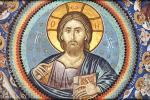 Christ the King Day is a Catholic celebration that takes place on the last Sunday of the liturgical year in the Catholic faith. continue reading
Christ the King Day is a Catholic celebration that takes place on the last Sunday of the liturgical year in the Catholic faith. continue reading
Advent 2024 starts on Sunday, December 1, 2024
Advent starts four Sundays before Christmas every year.Immaculate Conception of the Virgin Mary
[holy day of obligation]
Monday, December 9, 2024
![Immaculate Conception of the Virgin Mary[holy day of obligation] Image of Immaculate Conception of the Virgin Mary[holy day of obligation]](https://www.catholic.org/files/images/media//14812140994558_150.jpg) Blessed Virgin Mary in the first instance of her conception, by a singular privilege and grace granted by God, in view of the merits of Jesus Christ, ... continue reading
Blessed Virgin Mary in the first instance of her conception, by a singular privilege and grace granted by God, in view of the merits of Jesus Christ, ... continue reading
Advent 2025 ends on Sunday December 24, 2025
Advent ends on Christmas Eve, the day before Christmas, every year.Christmas
Birth of Our Lord Jesus
[holy day of obligation]
Monday, December 25, 2024
![ChristmasBirth of Our Lord Jesus[holy day of obligation] Image of ChristmasBirth of Our Lord Jesus[holy day of obligation]](https://www.catholic.org/files/images/media//15226932365_150.jpg) Christmas is an annual festival commemorating the birth of Jesus Christ. continue reading
Christmas is an annual festival commemorating the birth of Jesus Christ. continue reading
The Solemnity of Mary, Mother of God
[holy day of obligation]
Wednesday, January 1, 2025
![The Solemnity of Mary, Mother of God[holy day of obligation] Image of The Solemnity of Mary, Mother of God[holy day of obligation]](https://www.catholic.org/files/images/media/2022/16665677875_150.jpg) The Solemnity of Mary, the Holy Mother of God is a feast day of the Blessed Virgin Mary under the aspect of her motherhood of Jesus Christ. continue reading
The Solemnity of Mary, the Holy Mother of God is a feast day of the Blessed Virgin Mary under the aspect of her motherhood of Jesus Christ. continue reading
Epiphany
Monday, January 6, 2025
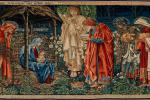 The Epiphany signifies the visitation of the Biblical Magi to the Baby Jesus. continue reading
The Epiphany signifies the visitation of the Biblical Magi to the Baby Jesus. continue reading
Advent Reflections
Reflection for every day of Advent
 Advent is a period of waiting, like Lent. We are called to obtain the Sacrament of Reconciliation, to pray and fast, as we await the arrival of our ... continue reading
Advent is a period of waiting, like Lent. We are called to obtain the Sacrament of Reconciliation, to pray and fast, as we await the arrival of our ... continue reading
Advent Calendar
Every day of Advent
 An Advent calendar has become a tradition for many families when celebrating Advent and the Christmas season. continue reading
An Advent calendar has become a tradition for many families when celebrating Advent and the Christmas season. continue reading
Advent Candle
24 Days of December
 An Advent candle is a neat way to mark off the days until Christmas. Such candles are commonly found in churches and sometimes in homes. continue reading
An Advent candle is a neat way to mark off the days until Christmas. Such candles are commonly found in churches and sometimes in homes. continue reading
Advent Wreath
Each Sunday of Advent
 The wreath's symbolism of the advent (coming) of Light into the world is clear. The gradual lighting of the four candles, one on each Sunday of the ... continue reading
The wreath's symbolism of the advent (coming) of Light into the world is clear. The gradual lighting of the four candles, one on each Sunday of the ... continue reading
Advent & Christmas Classes
14 Free Classes - Mobile Friendly
 You’re joining our global classroom. Thousands of students from all over the world, each with their own unique story, learn at their own pace on ... continue reading
You’re joining our global classroom. Thousands of students from all over the world, each with their own unique story, learn at their own pace on ... continue reading
Advent & Christmas PDFs
FREE - Printable - Catholic
 Free Advent & Christmas PDFs for anyone, anywhere; Use in your Parish Church - School - Bulletin Inserts. continue reading
Free Advent & Christmas PDFs for anyone, anywhere; Use in your Parish Church - School - Bulletin Inserts. continue reading
Christmas Gifts
Free Shipping $70+
 Make This Christmas Special with Gifts from Catholic Online Shopping. continue reading
Make This Christmas Special with Gifts from Catholic Online Shopping. continue reading
Nativity Scene
Holy Family
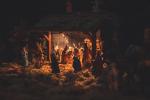 The Nativity Scene is a meaningful expression for our religious faith. With it, we provide a captivating visual focus during the Christmas season. continue reading
The Nativity Scene is a meaningful expression for our religious faith. With it, we provide a captivating visual focus during the Christmas season. continue reading
St. Nicholas
December 6th
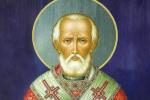 The true story of Santa Claus begins with Saint Nicholas. continue reading
The true story of Santa Claus begins with Saint Nicholas. continue reading
Advent? What is it all about
 The word Advent derives from the Latin word meaning coming. The Lord is coming. We may reflect that every year at this time we celebrate his coming... continue reading
The word Advent derives from the Latin word meaning coming. The Lord is coming. We may reflect that every year at this time we celebrate his coming... continue readingThe Christmas Story
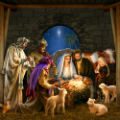 To become the mother of the Savior, Mary "was enriched by God with gifts appropriate to such a role." The angel Gabriel at the moment of... continue reading
To become the mother of the Savior, Mary "was enriched by God with gifts appropriate to such a role." The angel Gabriel at the moment of... continue readingAdvent Daily Readings
 The weeks of Advent remind us to set aside some of the hectic business of the holiday season, and to quietly reflect on the promise of the baby... continue reading
The weeks of Advent remind us to set aside some of the hectic business of the holiday season, and to quietly reflect on the promise of the baby... continue readingMore Advent & Christmas
Bishop Strickland's Christmastide Message: A Call to Repentance and Courageous Discipleship
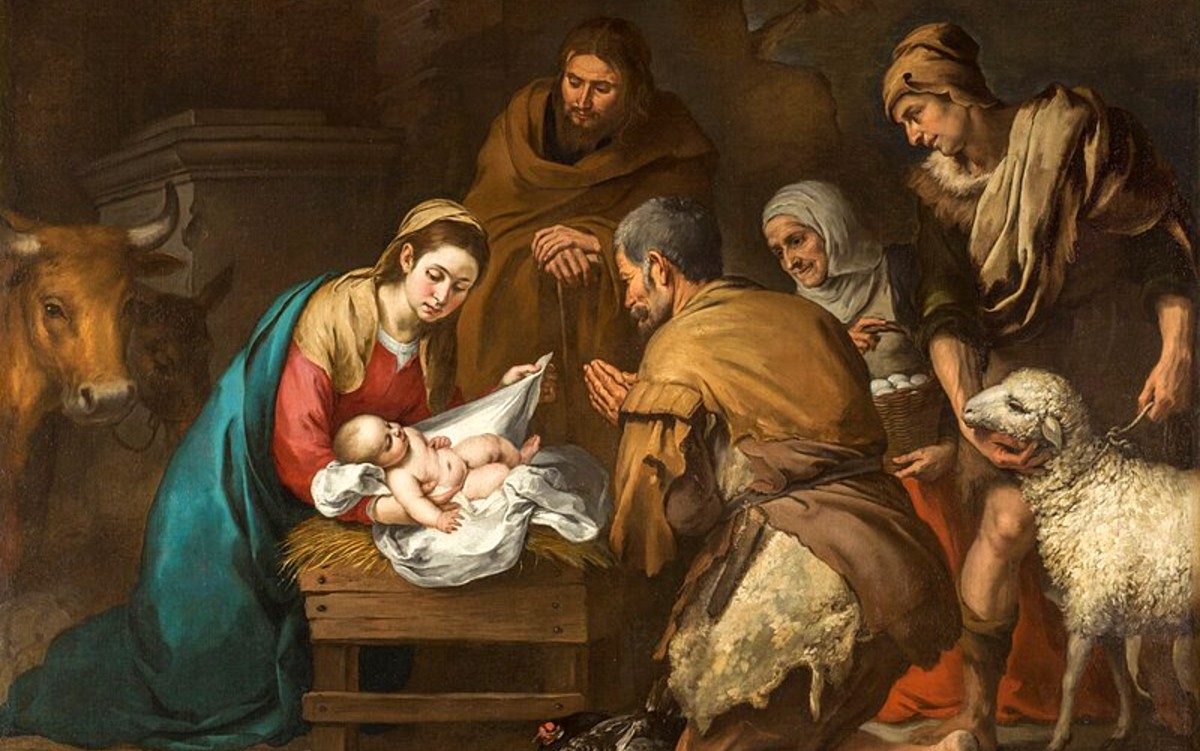
As we begin a new year, Bishop Strickland offers us a powerful reflection to carry through Christmastide and beyond. His words remind us of ... continue reading
The Deacon Saint Stephen the Proto-Martyr is a Model for all Christians

In the Catholic Church, Christmas is celebrated for eight days (Octave, from the Latin Octava) and opens up into a wonderful liturgical ... continue reading
Love is Born on Christmas Morn, and the World is Born Anew Watch

The Gospel passages proclaimed at the Vigil and the Midnight Mass of Christmas root the Nativity of the Lord, in the family history and ... continue reading
Rediscovering the True Importance of Christmas for Catholics

As the world becomes increasingly secularized, the true significance of Christmas can often be overshadowed by commercialism, distractions, ... continue reading
5 Ways to keep Jesus in your Christmas celebrations this year
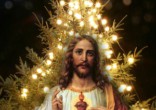
Christmas is a magical time of year when decorations line the streets, children are suddenly behaving and the Post Office struggles to keep ... continue reading
Get your oven mitts ready, it's time to bake Christmas cookies! Watch

Logs are burning in the fireplace and a sweet holiday tune escapes from the stereo. Christmas is here and it's time to break out those eggs ... continue reading
Join the Movement
When you sign up below, you don't just join an email list - you're joining an entire movement for Free world class Catholic education.

-

- Stations of the Cross
- Easter / Lent
- 5 Lenten Prayers
- Ash Wednesday
- Living Lent
- 7 Morning Prayers
- Mysteries of the Rosary
- Litany of the Bl. Virgin Mary
- Popular Saints
- Popular Prayers
- Female Saints
- Saint Feast Days by Month
- Pray the Rosary
Stop Lying: You Don’t Represent ‘The American People’ — You Represent Your District
Easter 2025: Liberation Day – Time to Reclaim Our Faith, Our Church, and Our Future
Bishop Joseph Strickland’s Letter to President Trump: A Call for Peace in the Middle East
Daily Catholic
 Daily Readings for Monday, March 31, 2025
Daily Readings for Monday, March 31, 2025 St. Benjamin: Saint of the Day for Monday, March 31, 2025
St. Benjamin: Saint of the Day for Monday, March 31, 2025 Prayer for God's Help in Daily Actions: Prayer of the Day for Friday, March 14, 2025
Prayer for God's Help in Daily Actions: Prayer of the Day for Friday, March 14, 2025 Daily Readings for Sunday, March 30, 2025
Daily Readings for Sunday, March 30, 2025 St. Peter Regulatus: Saint of the Day for Sunday, March 30, 2025
St. Peter Regulatus: Saint of the Day for Sunday, March 30, 2025- To Perceive Animals as God's Gifts: Prayer of the Day for Thursday, March 13, 2025
![]()
Copyright 2025 Catholic Online. All materials contained on this site, whether written, audible or visual are the exclusive property of Catholic Online and are protected under U.S. and International copyright laws, © Copyright 2025 Catholic Online. Any unauthorized use, without prior written consent of Catholic Online is strictly forbidden and prohibited.
Catholic Online is a Project of Your Catholic Voice Foundation, a Not-for-Profit Corporation. Your Catholic Voice Foundation has been granted a recognition of tax exemption under Section 501(c)(3) of the Internal Revenue Code. Federal Tax Identification Number: 81-0596847. Your gift is tax-deductible as allowed by law.

















 Daily Readings for Monday, March 31, 2025
Daily Readings for Monday, March 31, 2025 St. Benjamin: Saint of the Day for Monday, March 31, 2025
St. Benjamin: Saint of the Day for Monday, March 31, 2025 Prayer for God's Help in Daily Actions: Prayer of the Day for Friday, March 14, 2025
Prayer for God's Help in Daily Actions: Prayer of the Day for Friday, March 14, 2025 St. Peter Regulatus: Saint of the Day for Sunday, March 30, 2025
St. Peter Regulatus: Saint of the Day for Sunday, March 30, 2025